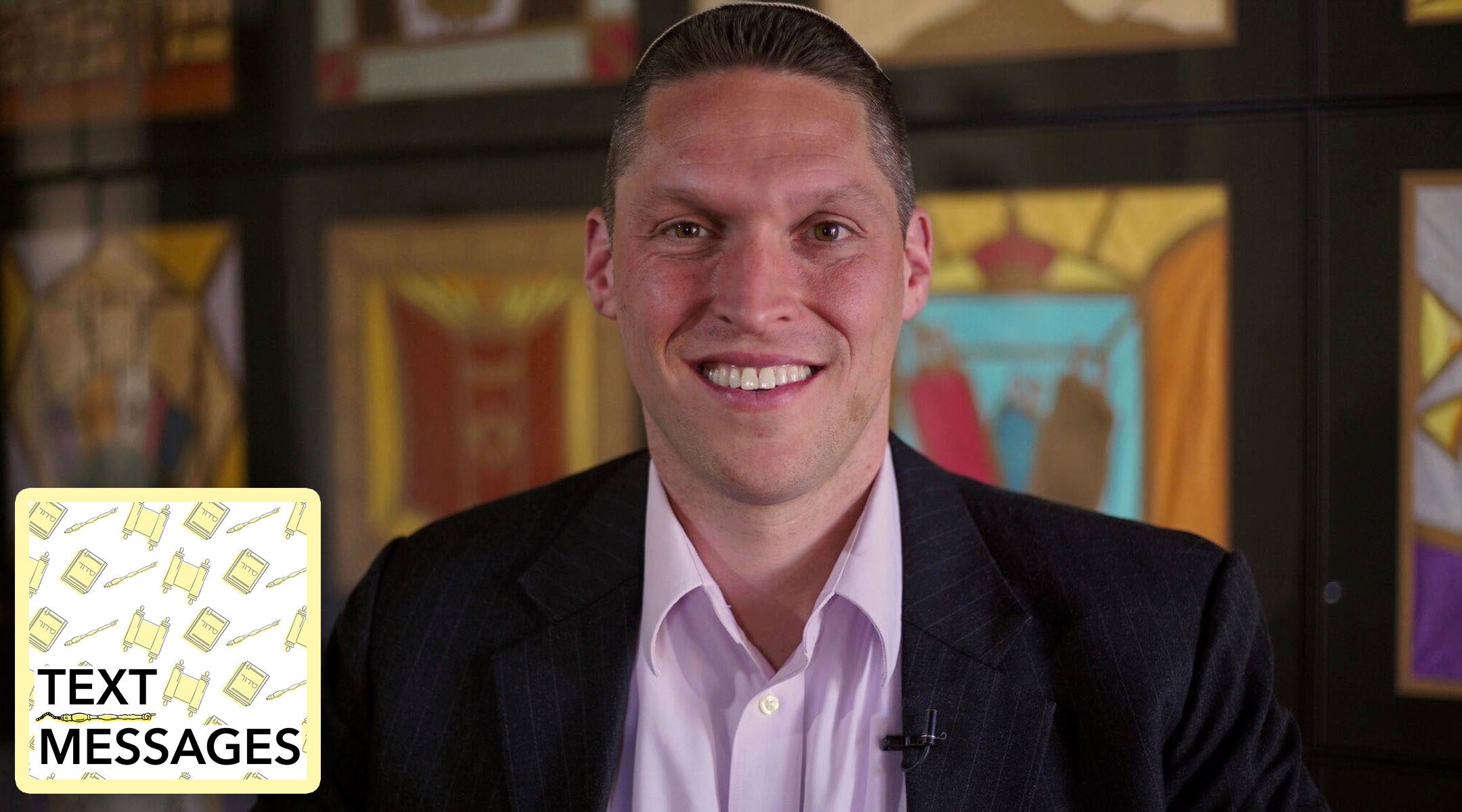Text Messages is a column sharing wisdom from the weekly Torah portion produced with The Jewish Week.
(JTA) — America faces challenges we have not seen in generations. Deep elements of resentment and radicalism are set on tearing apart the fabric of the nation. Our ability to argue with humility is gone, crossing partisan divides is a dire proposition and violence is seen by too many as a necessary political remedy to return to basic principles.
With all the uncertainties around us — climate change, public health crises, economic instability, political extremism and polarization, conspiracy theories and a breakdown of societal trust — we don’t always know how to engage or how to lead in any given moment.
Of course, we don’t have to accept this. And indeed, Jewish tradition and wisdom can guide us in profoundly different directions that bring about healing and, most importantly, a sense of humility. We can live with humble uncertainty and yet also with fervent moral conviction.
This week’s Torah portion, Parshat Yitro, provides us with a profound question: Why do the Ten Commandments, which begin with the phrase “I am the Lord your God,” use the Hebrew word “Anochi” (which means “I”) instead of the more common “Ani” (which also means “I”)?
For generations, this grammatical and philosophical question has intrigued Jewish scholars.
To help create a foundation for this question, Rabbi Mordechai Yosef Leiner of Ishbitz, known as the Mei Ha’Shiloah, suggests that the extra letter in Anochi signifies the chasm between what we know and what we think we know. This is the central point of Jewish revelation: Even that which we know so deeply, we only partially know.
More critically, getting to truly know God requires us to put aside our egos.
The Reform teacher of Jewish mysticism Rabbi Lawrence Kushner writes about another place where Anochi is used rather than Ani: In Genesis 28:16, when Jacob awakens from his famous dream and says, “Surely there is God in this place and I [anochi] did not know”:
This simple ‘extra I’ … leads R’ Pinhas Horowitz, the author of a Hasidic commentary on the Torah, ‘Panim Yafot,’ to an important insight. ‘It is only possible for a person to attain that high rung of being able to say, “Surely God is in this place,” when he or she has utterly eradicated all trace of ego from his or her personality, from his or her sense of self, and from his or her being.
The space of prayer in which we connect with the most expansive spiritual consciousness is actually a tool for cultivating compassion and empathy. In focusing on divinity, we abandon our self-centeredness and find a new center in everyone and everything else beyond us.
For another view, Rabbi Yehudah Aryeh Leib (the Sefat Emet) writes:
The simple meaning of this is that the land of Israel is the place where one surrenders one’s senses and desires (will) to God’s will … All externals must be abandoned for the sake of seeing God’s will. Only then is it revealed to a person … To this end we must continually surrender our knowledge … that which we understand with our minds.
Shall we embrace the “I” of Anochi, or will we seek to embody the “I” of Ani? We know we must rescue religious fervor from fundamentalist fervor and epistemological arrogance and return to a place of awe and questioning if we hope to restore a Jewish worldview of humble allyship rather than arrogant supremacist ideologies. We are left humbled seeking to move from ego to a place of godliness.
So must we be left alone and lost without any way to know, act or speak? The neo-Hasidic teacher and late leader of the Renewal movement, Rabbi Zalman Schachter-Shalomi, wrote in “Journey Beyond Knowledge”:
A real question comes from (admitting) ‘Eini yodea’ — I really don’t know. The admission of not knowing is the prelude to redemption and revelation. So, Moshe Rabbeinu himself said: ‘We won’t know with what we shall serve God until we get there.’ (Exodus 10:26)
Instead, we are awakened to postmodern responsibility. We are called to act when we don’t know what is right. We are called to lead when we don’t have certainty. We are called to pray when we know not Who we pray to. We are called to community when we are uncertain about who we must stand with at the given time.
We may know more later than we do now. And yet, we must still act and we must still respond, even with our uncertainty. Michael Fishbane writes in “Sacred Attunement” about what it means to be in a sacred covenant and to our ability to process obligation within new moments of uncertainty: We can accept it, or we can deny it. But nevertheless, we are expected to respond to it.
And as we learn from Parshat Yitro, we don’t have to make all moral decisions and lead by ourselves. There is holiness in collaboration, in bringing people together and in building community rather than shunning it. As Moshe learns from his father-in-law, Yitro, we have an innate ability to build community, share leadership and walk together — and we’re not truly able to be our best selves when we try to do everything by ourselves.
Including more voices in our work and conversations also enables us to expand our spiritual consciousness. Alone, at Sinai, we are struck down by lightning in our smallness. Together, at Sinai, we are humbled but united in a bold, albeit uncertain, holy mission to repair the world.
The challenges we face are not insignificant, and the right path is not always clear. But let us reject the ego, cynicism and radical skepticism that move us away from courageous action. Let us reject fundamentalism that arrogantly offers us pure truth and certainty of conviction. Let us, together, choose a middle path that is modest and imprecise, yet morally robust.
JTA has documented Jewish history in real-time for over a century. Keep our journalism strong by joining us in supporting independent, award-winning reporting.







